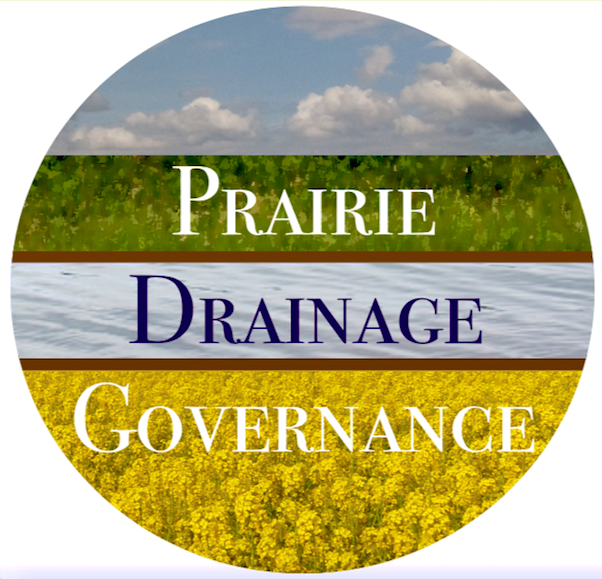Prairie Drainage Governance
Diagnosing policy and governance effectiveness for agricultural water management
 Agricultural water management (aka drainage) is described as moving water to make land available for agriculture. Agricultural water management provides several societal benefits including increasing the amount of productive land and improving soil conditions. However, agricultural water management can negatively impact wetlands and wildlife biodiversity, as well as water quality, drought, and flood risk. Not surprisingly, agricultural water management is often a contentious topic that divides communities as they debate the best way to manage land, water, and human values.
Agricultural water management (aka drainage) is described as moving water to make land available for agriculture. Agricultural water management provides several societal benefits including increasing the amount of productive land and improving soil conditions. However, agricultural water management can negatively impact wetlands and wildlife biodiversity, as well as water quality, drought, and flood risk. Not surprisingly, agricultural water management is often a contentious topic that divides communities as they debate the best way to manage land, water, and human values.
These complex social dimensions of agricultural water management, how it is managed and governed, and the conflicts that arise in the process, is the focus of this research project. To be successful, our project will engage earnestly with stakeholders in all aspects of the topic, including producers, landowners, watershed associations, stewardship groups, provincial authorities, and numerous interested NGOs. Our goal is to understand how we can better foster collaboration over conflict, support sustainable livelihoods for farmers and ranchers while addressing wildlife and water quality and flow concerns, and deal with a changing climate that includes more extreme swings in water availability.

